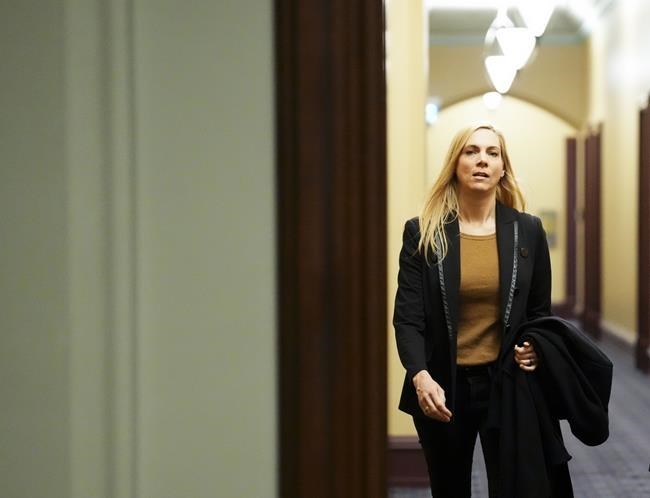OTTAWA — Sport Minister Pascale St-Onge plans to push her provincial counterparts to hasten their efforts to investigate abuse in sports when she meets them in February in Prince Edward Island.
St-Onge said in August she asked provinces to sign on to the new national Office of the Sport Integrity Commissioner for provincial-level complaints, or develop their own similar program. She said they all committed to doing so.
"I'm going to ask them what their progress is, where they're going, what their timeline is," she said. "This needs to happen as quickly as possible. I think we're facing an urgent matter. We're hearing these stories of abuse and maltreatment at all levels. It shouldn't be a jurisdictional issue. All athletes should know where to turn to when they're facing these situations."
The federal sport integrity office opened in June to handle complaints and investigations for national-level athletes in sporting organizations that sign on to the program. St-Onge has said any of the 64 national sporting organizations that haven't signed on by April 1 will lose their federal funding.
As of Jan. 10, 22 were full participants, but the sport integrity commissioner's website says many more are in the process of doing so. There are six additional sporting groups who are signatories, including training institutes in the Atlantic and Ontario and the Canadian Olympic Committee.
But the national office is limited to complaints and investigations involving national-level athletes, and St-Onge said the vast majority of athletes in Canada are training and competing at non-national levels. That includes provincial athletes, high schools and community clubs, all of which fall under provincial jurisdiction.
Currently only Quebec has a provincial-level complaints system that was launched by the provincial government in 2021. Athletes in Quebec can make a complaint through an online portal that is also available on most sport federation websites, or with the help of Sport'Aide, an athlete assistance organization.
The matter will be raised by St-Onge when she meets the provincial ministers for sport Feb. 17 and 18 when they're in Charlottetown for the opening ceremonies of the Canada Winter Games.
Hundreds of athletes from more than a dozen sports have come forward in recent years accusing coaches, trainers and others of abuse. In some cases athletes said their abusers used the power they had to decide national team spots, while others have come forward with horrifying allegations of abusive coaching methods and sexual assaults.
There have also been concerns that a lack of information sharing between provinces about abuse allegations has allowed coaches accused of abuse in one province to simply move and resume coaching and abusing athletes in another province.
The commission received 24 complaints in its first three months but only eight involved sporting bodies that had already signed on to the program, and only two of those could be investigated. The others involved athletes whose national sporting body was a member but the athlete was not, or the complaint was not covered under the universal sporting code of conduct.
In its second three months, between October and December, another 24 complaints were made, but by then more organizations were participants so 18 were from athletes in sports covered by the office's powers.
Still, only eight of those complaints can be investigated because the others fall outside the commissioner's jurisdiction.
The code of conduct prohibits psychological abuse, including verbal assaults in person or online, and body shaming, physical abuse including denying adequate food or water, neglect and sexual abuse. It also covers those who fail to report alleged abuse by others, those who make false reports and retaliation against people who make complaints.
This report by The Canadian Press was first published Jan. 31, 2023.
Mia Rabson, The Canadian Press
Note to readers: This is a corrected story. An earlier version incorrectly identified Sport'Aide as the organization created to run a Quebec complaints process.



